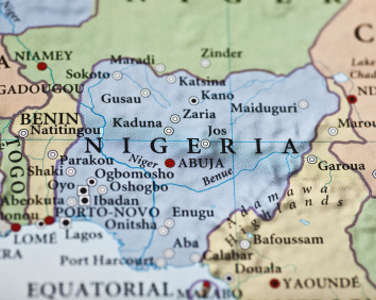Christians in Jos, Nigeria, Fear Further Attacks
 Gunshots and smoke continued to alarm residents of Jos in central Nigeria today, with the Christian community fearing further violence from Muslim youths who on Sunday attacked a Catholic church and burned down several other church buildings.
Gunshots and smoke continued to alarm residents of Jos in central Nigeria today, with the Christian community fearing further violence from Muslim youths who on Sunday attacked a Catholic church and burned down several other church buildings.
A 24-hour curfew imposed yesterday in Jos and the suburb of Bukuru by the Plateau state government was extended through Wednesday. Police said continuing violence was initially triggered by Sunday’s unprovoked attack by Muslim youths on worshippers at the St. Michael’s Catholic Church in Nasarawa Gwong, in the Jos North Local Government Area.
Also burned were buildings of the Christ Apostolic Church, Assemblies of God Church, three branches of the Church of Christ in Nigeria and two buildings of the Evangelical Church of West Africa, Christian leaders said.
The number of casualties continued to grow, reportedly reaching more than 100 as security forces tried to rein in rioters, with both Christian and Muslim groups still counting their losses. Hundreds have reportedly been wounded.
“We have been witnessing sporadic shootings in the last two days,” said the Rev. Chuwang Avou, secretary of the state chapter of the Christian Association of Nigeria. “We see some residents shooting sporadically into the air. We have also seen individuals with machine guns on parade in the state.”
Avou said many of those who are shooting are civilians, not policemen, and that they have been mounting road blocks and causing chaos in the area. At least 35 people have been arrested.
“What we have witnessed only goes to show that the problem in the state is far from over,” he said. “Many families have been displaced. There are a number who are receiving treatment in the hospital. The dusk-to-dawn curfew imposed in the state has not solved any problem, as there is still tension in the land.”
Avou said the crisis broke out when Muslim youths pursued a woman into a church during worship on Sunday, wreaking havoc on the service.
“Some Muslim youths invaded some churches and started burning and destroying properties,” he said. “We were told that the youths pursued a lady to the church. Nobody knew what the lady did. What we just discovered was that the entire atmosphere was ignited and houses were being burned.”
A Muslim group in the area, however, dismissed claims that Muslim youths ignited the tensions. They accused Christian youths of stopping a Muslim from rebuilding his house.
State Commissioner of Police Greg Anyating stated that Muslim youths were to blame for setting off the violence.
As violence continued today, there was a mass movement of Christians and Muslims from areas where rampaging youths were unleashing mayhem on the city despite heavy security. The Nigerian army was reportedly summoned to try to restore order.
The Rev. Ignatius Kaigama, co-chairman of the state Inter-Religious Council and Catholic Archbishop of Jos, condemned the recurring civil disturbances in the state and called on all to “sheath their swords and be their brothers’ keepers.”
The secretary of the Pentecostal Fellowship of Nigeria, Pastor Wale Adefarasin, said attacks on Christians are a manifestation of terrorism in the country.
“What we should realize is that the government is not helping situations,” he said. “It is an illusion that Nigeria is safe.”
He added that terrorism affects both Christians and Muslims negatively, and it is the duty of elected officials to ensure that terrorists are detected early and deterred.
“The Muslim fundamentalists want to take over Jos by all means,” Pastor Adefarasin said. “They claim that Jos is a Muslim state, which is not true.”
Violence hit the same area on Nov. 28-29, 2008, when murderous rioting sparked by Muslim attacks on Christians and their property left six pastors dead, at least 500 other people killed and 40 churches destroyed, according to church leaders. More than 25,000 persons were displaced in the two days of violence.
What began as outrage over suspected vote fraud in local elections quickly hit the religious fault line as angry Muslims took aim at Christian sites rather than at political targets. Police and troops reportedly killed about 400 rampaging Muslims in an effort to quell the unrest, and Islamists shot, slashed or stabbed to death more than 100 Christians.
The violence comes at a time of a leadership vacuum in Nigeria, with illness requiring Muslim President Umaru Yar’Adua to leave the country on Nov. 23 to seek treatment in Saudi Arabia.
Sectarian violence in Jos, a volatile mid-point where the predominantly Muslim north meets the mainly Christian south, left more than 1,000 people dead in 2001.
Another 700 people were killed in sectarian outbreaks of violence in 2004. Located in Nigeria’s central region between the Muslim-majority north and the largely Christian south, Plateau state is home to various Christian ethnic groups co-existing uneasily with Muslim Hausa settlers.Â














































